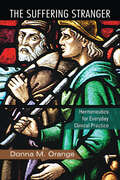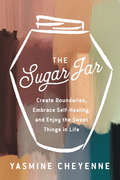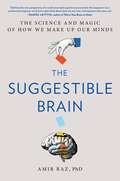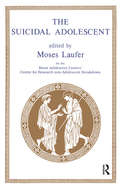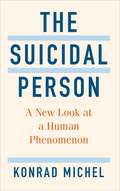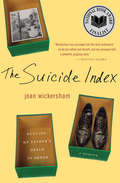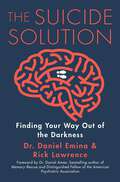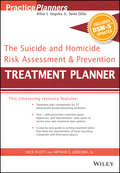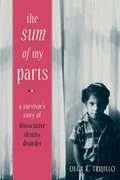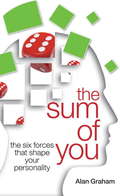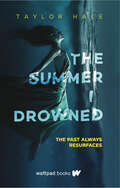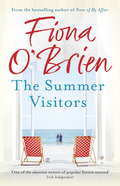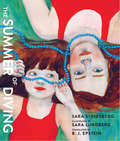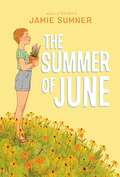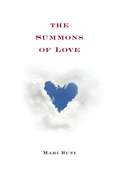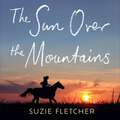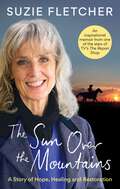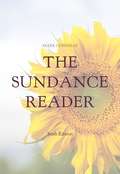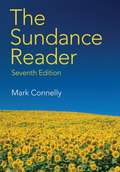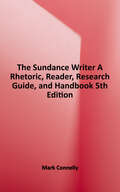- Table View
- List View
The Success Principles: How to Get from Where You Are to Where You Want to Be
by Jack Canfield Janet Switzer64 principles meant to inspire people of all backgrounds. Topics include self transformation, relationship building, money success, empowerment, overcoming fears, positive thinking exercises, and more. From a motivational speaker and co-creator of the Chicken Soup for the Soul series.
The Suffering Stranger: Hermeneutics for Everyday Clinical Practice
by Donna M. OrangeWinner of the 2012 Gradiva Award! Utilizing the hermeneutics of Hans-Georg Gadamer and the ethics of Emmanuel Lévinas, The Suffering Stranger invigorates the conversation between psychoanalysis and philosophy, demonstrating how each is informed by the other and how both are strengthened in unison. Orange turns her critical (and clinical) eye toward five major psychoanalytic thinkers – Sándor Ferenczi, Frieda Fromm-Reichmann, D. W. Winnicott, Heinz Kohut, and Bernard Brandchaft – investigating the hermeneutic approach of each and engaging these innovative thinkers precisely as interpreters, as those who have seen the face and heard the voice of the other in an ethical manner. In doing so, she provides the practicing clinician with insight into the methodology of interpretation that underpins the day-to-day activity of analysis, and broadens the scope of possibility for philosophical extensions of psychoanalytic theory.
The Sugar Jar: Create Boundaries, Embrace Self-Healing, and Enjoy the Sweet Things in Life
by Yasmine Cheyenne“With calm and compassionate power, Yasmine is helping us to find our way back home—back to our own selves.” —Layla Saad, New York Times bestselling author of Me & White Supremacy“Yasmine’s work is monumental, and I am in much better holistic alignment because of her dedicated and helpful offerings to the world.”—Alex Elle, author of After the RainA radical approach to setting boundaries and protecting your energy, rich with tools for self-healing.Imagine a glass jar filled with sugar on a kitchen counter. You are the jar, and the sugar is your energy. If the jar has no lid, people can come in and take as much sugar as they want. Sometimes, they spill that sugar all over. You may try to refill your jar—replenish your energy—through self-care, but because there is no a lid—no protective boundary—you cannot control how much of your vital life force is being drained.The Sugar Jar metaphor is a powerful teaching tool that wellness advocate and coach Yasmine Cheyenne has successfully used with her clients. Now, in her debut book, she makes it available to everyone. Combining stories, exercises, and prompts, The Sugar Jar lets you see just how much energy you have and how much is being used by others. It helps you identify what depletes you, what restores you, and how to recognize destructive patterns. It empowers you to free yourself from performing for and serving others, teaching you to set boundaries to help you heal and recharge. The Sugar Jar frees you from the excess stress and exhaustion that wears you down. It allows you to unleash your authentic self, choose joy, and find lasting balance.A compassionate teacher, Cheyenne offers a unique and much needed perspective. A former member of the Air Force working with victims of domestic violence, she has specifically designed her approach and questions about boundaries, self-care, and self-healing for readers of all backgrounds, and especially readers of color, whose stressors and life challenges have too often been excluded and overlooked. Cheyenne herself has felt unwelcome as a Black woman in predominantly white wellness groups and retreats. Her inclusive message speaks to the needs of BIPOC readers, and accepts them where they are.Warm and honest, featuring a beautiful and inviting two-color design, The Sugar Jar shows you how to make small adjustments that can lead to big changes in your life.
The Suggestible Brain: The Science and Magic of How We Make Up Our Minds
by Amir RazNeuroscientist Amir Raz shares decades of research and case studies to show how suggestion changes the brain and shapes our behavior—and how we can protect ourselves from and harness suggestibility in our own lives. Suggestions can make cheap wine taste like Château Margaux, warp our perception of time, and alter our memories—and in an age where disinformation has impacted our personal lives and our politics, the power of suggestion is worth even more attention. In The Suggestible Brain, world-renowned expert on the science of suggestion Amir Raz, PhD, brings together cognitive aspects of psychology, sociology, and anthropology with issues in our contemporary culture, media, alongside a series of case studies of patients with disorders ranging from Tourette&’s Syndrome to false pregnancies, lactose intolerance, and asthma to show exactly how suggestions can cut deep into our brains, shake our fundamental knowledge, and override our core human values. Some questions include: Why do placebos work even when people know they are inactive pills—and why do red pills cause stress whereas blue pills feel calm? Can suggestions effectively treat depression and anxiety? How do people weaponize suggestion in the form of gaslighting and mental abuse? Why are we more likely to believe fake news that already aligns with our political beliefs? How can suggestions help fight racism, hatred, and bigotry? Conversely, how can suggestions backfire and create the opposite effect? Merging Dr. Raz&’s experiences as a magician and hypnotist with decades&’ worth of his own neuropsychological research, The Suggestible Brain maps the twilight zone where magic and science coalesce, and shows how easily suggestible and manipulable we all are. Readers will walk away with actionable advice on how to harness the science of suggestion to propel change, protect against manipulative misinformation, and better regulate our internal, mental universe.&“Professor Amir Raz is a consummate scientist and former professional magician. His scientific research and writing have made substantial contributions to our understanding of hypnosis, placebo effects, and suggestion. His book will amaze and entertain you, while at the same time being firmly rooted in the scientific data. It is a magical book.&”--Irving Kirsch, PhD, author of The Emperor&’s New Drugs: Exploding the Antidepressant Myth"[This book] could have been titled This is Your Brain on Magic. Told from the twin perspectives of a world-renowned cognitive neuroscientist who happens to be a professional magician, you&’ll never again think about what you see, hear, and experience the same way.&”—Daniel Levitan, author of This is Your Brain on Music
The Suicidal Adolescent
by Moses LauferAs our knowledge of the change and turmoil of adolescence grows, so the number of issues on which psychotherapeutic techniques can shed light increases: this monograph focuses on one of the most urgent. It provides not only practical insights into dealing with suicidal or potentially suicidal adolescents - with an emphasis on prevention of the problem as early as possible - but also a model of the way in which adolescents may find themselves becoming suicidal. Suicide attempts are rare in childhood; they are generally triggered after puberty by the adolescent's reaction to changes in his newly sexually mature body. It is the body that is perceived as the enemy, and sometimes the death of the body seems the only recourse. The adolescent who actually attempts to kill himself no longer doubts his actions or his solutions on his mental creations. At the time of his decision to kill himself, he is taken over by his need for peace more than by the fact of his own death.
The Suicidal Person: A New Look at a Human Phenomenon
by Konrad MichelKonrad Michel, a leading psychiatrist and acclaimed expert, draws on decades of experience to offer necessary new ways of understanding—and preventing—suicide. After one of his first patients died by suicide, Michel devoted himself to researching self-harm. Writing vividly and personally, he recounts more than forty years of working with and learning from suicidal patients.Michel shows that suicide is not just a consequence of mental illness but an action related to a person’s life story. Drawing on hundreds of interviews with suicidal patients, he argues that suicide and suicide attempts occur when someone experiences extreme emotional pain that severely impairs the ability to think and act rationally. Based on this understanding, Michel and his colleagues developed a person-centered approach to treatment that overcomes the limitations of the traditional medical model. Through a brief therapy, patients find a personally meaningful narrative understanding of their suicidal thoughts and impulses. People at risk can learn to recognize their vulnerabilities in order to manage potentially life-threatening situations and keep themselves safe. Michel emphasizes the importance of communication: medical professionals need to connect with patients as individuals to identify specific warning signs.Both compassionate and rigorous, this book provides vital insight into suicide prevention and shows how changing attitudes will help save lives. It includes practical advice for people at risk, with special emphasis on young people, as well as for relatives and health professionals.
The Suicide Case - Safar Rahasyon Kaa: दि सुसाइड केस: सफ़र रहस्यों का
by Supriya Pravahहिमालय यात्रा से आने के सिर्फ तीन दिन बाद ही सुपरस्टार आरव की लाश रेल की पटरी पर मिलती है। आरव की संदेहास्पद मौत की जाँच करते हुए उसकी एक्स गर्लफ्रेंड एसीपी कलसी, उसका दोस्त दीपक व उसका वकील अरुणाचल पहुंचते है। नन्हे लामा और वकील के लापता होते ही एसीपी कलसी के शक की सुई वकील पर अटक जाती है। आखिर क्या है आरव की मौत का राज? मुंबई से अरुणाचल, नेपाल, तिब्बत, कैलाश और फिर मुंबई से इंदौर, रुड़की तक के इस रोमांचक रहस्यमई यात्रा में मर्डर मिस्ट्री के साथ दोस्ती, प्यार, व्यथा और भावुकता है। यह अद्भुत कहानी है एक मानव जीवन के संघर्ष, उसके जीने की इच्छा और आत्मदर्शन की।
The Suicide Index: Putting My Father's Death in Order
by Joan WickershamNational Book Award Finalist: &“Wickersham has journeyed into the dark underworld inside her father and herself and emerged with a powerful, gripping story.&” —The Boston Globe One winter morning in 1991, Joan Wickersham&’s father shot himself in the head. The father she loved would never have killed himself, and yet he had. His death made a mystery of his entire life. Who was he? Why did he do it? And what was the impact of his death on the people who loved him? Using an index—the most formal and orderly of structures—Wickersham explores this chaotic and incomprehensible reality. Every bit of family history, every encounter with friends, doctors, and other survivors, exposes another facet of elusive truth. Dark, funny, sad, and gripping, at once a philosophical and a deeply personal exploration, The Suicide Index is, finally, a daughter&’s anguished, loving elegy to her father.
The Suicide Solution: Finding Your Way Out of the Darkness
by Rick Lawrence Daniel EminaThis is a book for people who are struggling to find their way out of a cave of anxiety, depression, and suicidal thoughts—and for anyone who cares for someone who&’s been lost in that cave. Suicide is now the leading cause of death among young adults 18-34, and the fourth-leading cause of death among the middle-aged. Just as a computer&’s hardware determines its foundational capabilities and its software determines how it interfaces with the world, humans&’ hardware is tied to our biology and our software dictates how we relate to others and ourselves. Together, these parts of our identity determine our functionality, limitations, and possibilities. We become the story we have decided to live inside. When Jesus said, &“I have come to set captives free,&” He meant that He came to &“de-bug&” our programming. Jesus invites us to partner with Him to bring to the surface and then move past our debilitating bugs. This book is a conversation between a minister and a psychiatrist. Informed by the clinical realities of anxiety, depression, and suicide, the authors draw from the transformational relational strategies of Jesus to chart a path into life and freedom.
The Suicide and Homicide Risk Assessment and Prevention Treatment Planner, with DSM-5 Updates (PracticePlanners)
by Arthur E. Jongsma Jr. Jack KlottThis timesaving resource features: Treatment plan components for 27 behaviorally based presenting problems Over 1,000 prewritten treatment goals, objectives, and interventions—plus space to record your own treatment plan options A step-by-step guide to writing treatment plans that meet the requirements of most insurance companies and third-party payors The Suicide and Homicide Risk Assesment & Prevention Treatment Planner provides all the elements necessary to quickly and easily develop formal treatment plans that satisfy the demands of HMOs, managed care companies, third-party payors, and state and federal review agencies. A critical tool for assessing suicidal and homicidal risks in a wide range of treatment populations Saves you hours of time-consuming paperwork, yet offers the freedom to develop customized treatment plans for your adult, adolescent, and child clients Organized around 27 main presenting problems and covering all client populations (suicidal adults, adolescents, and children) as well as homicidal personality types and risk factors including antisocial, psychotic, PTSD, and manipulative Over 1,000 well-crafted, clear statements describe the behavioral manifestations of each relational problem, long-term goals, short-term objectives, and clinically tested treatment options Easy-to-use reference format helps locate treatment plan components by behavioral problem Includes a sample treatment plan that conforms to the requirements of most third-party payors and accrediting agencies (including HCFA, JCAHO, and NCQA)
The Sullivanians: Sex, Psychotherapy, and the Wild Life of an American Commune
by Alexander StilleFINALIST FOR THE 2024 GOTHAM BOOK PRIZEThe devolution of the Sullivan Institute, from psychoanalytic organization to insular, radical cult.In the middle of the Ozzie and Harriet 1950s, the birth control pill was introduced and a maverick psychoanalytic institute, the Sullivan Institute for Research in Psychoanalysis, opened its doors in New York City. Its founders, Saul Newton and Jane Pearce, wanted to start a revolution, one grounded in ideals of creative expression, sexual liberation, and freedom from the expectations of society, and the revolution, they felt, needed to begin at home. Dismantling the nuclear family—and monogamous marriage—would free people from the repressive forces of their parents. In its first two decades, the movement attracted many brilliant, creative people as patients: the painter Jackson Pollock and a swarm of other abstract expressionist artists, the famed art critic Clement Greenberg, the singer Judy Collins, and the dancer Lucinda Childs. In the 1960s, the group evolved into an urban commune of three or four hundred people, with patients living with other patients, leading creative, polyamorous lives.But by the mid-1970s, under the leadership of Saul Newton, the Institute had devolved from a radical communal experiment into an insular cult, with therapists controlling virtually every aspect of their patients’ lives, from where they lived and the work they did to how often they saw their sexual partners and their children. Although the group was highly secretive during its lifetime and even after its dissolution in 1991, the noted journalist Alexander Stille has succeeded in reconstructing the inner life of a parallel world hidden in plain sight in the middle of Manhattan. Through countless interviews and personal papers, The Sullivanians reveals the nearly unbelievable story of a fallen utopia.
The Sum Of My Parts: A Survivor's Story Of Dissociative Identity Disorder
by Olga R. TrujilloBy the first day of kindergarten, Olga Trujillo had already survived years of abuse and violent rape at the hands of her tyrannical father. Over the next ten years, she would develop the ability to numb herself to the constant abuse by splitting into distinct mental "parts. " Dissociative identity disorder (DID) had begun to take hold, protecting Olga's mind from the tragic realities of her childhood. InThe Sum of My Parts, Olga reveals her life story for the first time, chronicling her heroic journey from survivor to advocate and her remarkable recovery from DID. Formerly known as multiple personality disorder, DID is defined by the presence of two or more identities. In this riveting story, Olga struggles to unearth memories from her childhood, and parallel identities--Olga at five years old, Olga at thirteen--come forth and demand to be healed. This brave, unforgettable memoir charts the author's triumph over the most devastating conditions and will inspire anyone whose life has been affected by trauma.
The Sum of You: Teach Yourself
by Alan GrahamSix mathematical forces are at the heart of shaping your personality. Dr Alan Graham explains their importance, their history, how they impact your life, and how you can make them work for you.
The Summer I Drowned
by Taylor HaleThe past always resurfaces . . .Five years after almost drowning, Olivia Cathart returns home to Caldwell Beach determined to face her fears and take some risks—not just by swimming, but by opening her heart. Hoping to rekindle her friendships, she’s excited about a carefree summer with her best friends Keely and Miles. But life in the sleepy town has changed, and no one and nothing is as it seems.When a series of startling crimes threaten Olivia’s fragile state, she is plunged into a terrifying game of cat and mouse. Her only solace from the chaos is West, Miles’s disowned and ruggedly handsome brother, but even he can’t answer the question on everyone’s minds—is Olivia really in danger or is it simply all in her head?
The Summer Visitors: A heart-warming story about love, second chances and moving on
by Fiona O'Brien'Grown up, intelligent fiction - she just gets better and better' Cathy Kelly'One of the smartest writers of popular fiction around' Irish IndependentWhen handsome American Daniel O'Connell arrives in Ballyanna to research an old cable station for a documentary he is making, he's hoping that a stay in a sleepy Irish seaside town will help him and his traumatised son move on from a terrible accident. But Daniel soon finds that summer in Ballyanna is anything but quiet ...Meanwhile Annie Sullivan, daughter of the local hotel owner, has moved back home to mend her broken heart, telling everyone that she's there to figure out her next career move.But as a secret threatens Annie's dysfunctional family, Daniel's past is about to catch up with him. Will the two be able to grasp the new future that lies ahead before summer ends?
The Summer Visitors: A heart-warming story about love, second chances and moving on
by Fiona O'Brien'Grown up, intelligent fiction - she just gets better and better' Cathy Kelly'One of the smartest writers of popular fiction around' Irish IndependentWhen handsome American Daniel O'Connell arrives in Ballyanna to research an old cable station for a documentary he is making, he's hoping that a stay in a sleepy Irish seaside town will help him and his traumatised son move on from a terrible accident. But Daniel soon finds that summer in Ballyanna is anything but quiet ...Meanwhile Annie Sullivan, daughter of the local hotel owner, has moved back home to mend her broken heart, telling everyone that she's there to figure out her next career move.But as a secret threatens Annie's dysfunctional family, Daniel's past is about to catch up with him. Will the two be able to grasp the new future that lies ahead before summer ends?
The Summer of Diving
by Sara StridsbergThe award-winning and beautiful story of a child coping with her father's absence. The book tackles a difficult subject with great tenderness, validating a child's experience of a parent suffering from depression. "This poignant, gentle book . . . will be immensely helpful to anyone caring for the child of someone with major depression. It fills an important gap in literature for young children."—Andrew Solomon, author of The Noonday Demon (winner of the National Book Award) and Far From the TreeZoe&’s dad isn&’t home. She still sees him in photographs, laughing and playing tennis, but for now she can only visit him in a building where everyone looks sad and the walls are an ugly pink color. Some days Zoe&’s dad is too sad to see her, but she goes to the hospital anyway. While waiting she meets Sabina who invites her to swim across the world. Zoe&’s not sure it&’s possible, but Sabina tells her, &“A girl can do everything she wants.&” Even though Sabina sometimes dives deep into her own thoughts, the two of them swim around the world many times that summer, until eventually Zoe&’s dad is ready to come home. The Summer of Diving is a book full of imagination and hope with a tender child&’s-eye understanding of the world. Stridsberg&’s story and Lundberg&’s lush and colorful paintings reflect and validate a child&’s feelings of loss and longing for closeness when a parent&’s joy for living temporarily fades.
The Summer of June
by Jamie SumnerFrom the acclaimed author of Tune It Out and Roll with It comes a &“needed, hopeful&” (Booklist) middle grade book about a young girl who sets out to overcome her anxiety over the course of one life-changing summer.Twelve-year-old June Delancey is kicking summer off with a bang. She shaves her head and sets two goals: she will beat her anxiety and be the lion she knows she can be, instead of the mouse everyone sees. And she and her single mama will own their power as fierce, independent females. With the help of Homer Juarez, the poetry-citing soccer star who believes in June even when she doesn&’t believe in herself, she starts a secret library garden and hatches a plan to make her dreams come true. But when her anxiety becomes too much, everything begins to fall apart. It&’s going to take more than a haircut and some flowers to set things right. It&’s going to take courage and friends and watermelon pie. Forget second chances. This is the summer of new beginnings.
The Summons of Love
by Mari RutiWe are conditioned to think that love heals wounds, makes us happy, and gives our lives meaning. When the opposite occurs and love causes fracturing, disenchantment, and existential turmoil, we suffer deeply, especially if we feel that love has failed us or that we have failed to experience what others seem so effortlessly to enjoy. In this eloquently argued, psychologically informed book, Mari Ruti portrays love as a much more complex, multifaceted phenomenon than we tend to appreciate—an experience that helps us encounter the depths of human existence. Love's ruptures are as important as its triumphs, and sometimes love succeeds because it fails. At the heart of Ruti's argument is a meditation on interpersonal ethics that acknowledges the inherent opacity of human interiority and the difficulty of taking responsibility for what we cannot fully understand. Yet the fact that humans are often irrational in love does not absolve us of ethical accountability. In Ruti's view, we must work harder to map the unconscious patterns motivating our romantic behavior. As opposed to popular spiritual approaches urging us to live fully in the now, Ruti treats the past as a living component of the present. Only when we catch ourselves at those moments when the past speaks in the present can we keep ourselves from hurting the ones we love. Equally important, Ruti emphasizes transcending our individual histories of pain, an act that allows us to face the unconscious demons that dictate our relational choices. Written with substance and compassion, The Summons of Love restores the enlivening and transformative possibilities of romance.
The Sun Over The Mountains: A Story of Hope, Healing and Restoration
by Suzie FletcherA memoir of hope, healing and restoration, from star of TV's The Repair Shop, Suzie Fletcher.Suzie Fletcher is the warm and friendly face on TV's The Repair Shop that viewers look forward to watching every week as the resident leather expert - a craft she has honed over four decades and was born out of her love of horses. But while she tends to be the one repairing and offering a gentle kindness to others, Suzie has also been in a process of change, reflection, and healing.In her first book Suzie looks back over her life - which moves from England to Colorado and back again - and the places, people and experiences that have shaped the person she is today. We'll hear for the first time, how Suzie has overcome some of life's most difficult challenges, from complicated relationships to grief.A self-confessed free spirit with a deep connection to nature, Suzie's exceptional warmth and zest for life shine through on every page, making The Sun Over the Mountains a truly inspiring read that will resonate with anyone who has faced uncertainty but has the courage and power within them to overcome it.Featuring Suzie and her brother Steve in conversation - exclusive to the audiobook!
The Sun Over The Mountains: A Story of Hope, Healing and Restoration
by Suzie FletcherA memoir of hope, healing and restoration, from star of TV's The Repair Shop, Suzie Fletcher.Suzie Fletcher is the warm and friendly face on TV's The Repair Shop that viewers look forward to watching every week as the resident leather expert - a craft she has honed over four decades and was born out of her love of horses. But while she tends to be the one repairing and offering a gentle kindness to others, Suzie has also been in a process of change, reflection, and healing.In her first book Suzie looks back over her life - which moves from England to Colorado and back again - and the places, people and experiences that have shaped the person she is today. We'll hear for the first time, how Suzie has overcome some of life's most difficult challenges, from complicated relationships to grief.A self-confessed free spirit with a deep connection to nature, Suzie's exceptional warmth and zest for life shine through on every page, making The Sun Over the Mountains a truly inspiring read that will resonate with anyone who has faced uncertainty but has the courage and power within them to overcome it.
The Sun Over The Mountains: A Story of Hope, Healing and Restoration
by Suzie FletcherA memoir of hope, healing and restoration, from star of TV's The Repair Shop, Suzie Fletcher.Suzie Fletcher is the warm and friendly face on TV's The Repair Shop that viewers look forward to watching every week as the resident leather expert - a craft she has honed over four decades and was born out of her love of horses. But while she tends to be the one repairing and offering a gentle kindness to others, Suzie has also been in a process of change, reflection, and healing.In her first book Suzie looks back over her life - which moves from England to Colorado and back again - and the places, people and experiences that have shaped the person she is today. We'll hear for the first time, how Suzie has overcome some of life's most difficult challenges, from complicated relationships to grief.A self-confessed free spirit with a deep connection to nature, Suzie's exceptional warmth and zest for life shine through on every page, making The Sun Over the Mountains a truly inspiring read that will resonate with anyone who has faced uncertainty but has the courage and power within them to overcome it.
The Sundance Reader (6th edition)
by Mark ConnellyThis edition has been updated to include over two dozen new readings, a four-part questioning strategy that follows each entry, expanded descriptions of the writing process to include thesis statements and outlines, sample student essays, a sample MLA-documented essay, materials on social issues, new visuals, expanded coverage on analyzing media, critiques of how writers use more than one method of development, and information on writing beyond the classroom. Connelly (Milwaukee Area Technical College) works thematically, focusing on the writing context and process, critical reading, narration, description, definition, comparison and contrast, analysis, division and classification, process, cause and effect, argument and persuasion. Along with a range of worthy readings, Connelly provides useful samples of writing students can analyze and many tips on organizing ideas and getting them down on paper. The result would work in survey literature and composition undergraduate courses.
The Sundance Reader, 7th edition
by Mark ConnellyTHE SUNDANCE READER, Seventh Edition, features more than 70 concise yet distinct essays drawn from a range of academic disciplines and professions to appeal to a variety backgrounds and interests. Combining classic and contemporary, traditional and provocative, this rich collection of engaging essays and articles emphasizes critical thinking, careful analysis, and effective writing and composition skills. Topics are as varied as the environment, culture, social issues, the media, and business. Selections include works by William Safire, Jessica Valenti, Robert Reich and Al Gore.
The Sundance Writer: A Rhetoric, Reader, Research Guide, and Handbook
by Mark ConnellyPraised for its practical strategies, real-world emphasis, and focus on critical thinking, this successful 4-in-1 text (rhetoric, reading, research guide, and handbook) prepares students for writing in college and the workplace. This edition has been revised so that students move more quickly from the writing process to writing in the modes and incorporating research into their writing projects.

